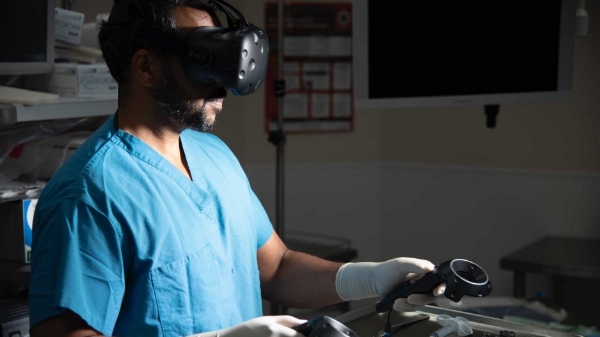Come meet us at the VR/AR Global Summit Nov 1-2
It is worth noting that Oxford Medical Simulation work with healthcare institutions globally is to enable VR-based education experiences. Contact jessica@oxfordmedicalsimulation.com who would be happy to discuss case studies that include these institutions more specifically!
The optimal method of clinical training is simulation - where the learner is placed in an immersive and engaging environment in which to practice as if in real life. Simulation is effective and has proven benefits on clinical performance and subsequent patient care. However, physical simulation is expensive, time and space consuming. It is only available in larger centres and needs to be led by faculty, meaning it cannot be scaled to deliver flexible training when needed by clinicians.
Oxford Medical Simulation began exploring other methods of delivering the benefits of physical simulation in a scalable, accessible manner. The one technology that has the power to immerse participants in fully interactive, immersive environments that feels real, is virtual reality (VR).
That is what Oxford Medical Simulation does. Learners see patients in virtual reality and do what they would do in real life - history, examinations, investigations, interpretation of results, diagnosis and treatment, all the while interacting with their virtual team. The patient, vitals, labs and clinical team adapt depending on learner actions and - thanks to in-built artificial intelligence - respond as they would in real life.
As in physical simulation, once the scenario is completed, the learner receives a debrief - either guided by the system or by faculty - and feedback on what they have done during the simulation. This data is made available to both the learner and the institution through the in-built analytics system. Learners can use the data to track progress, link to learning portfolios and identify areas for further improvement. Institutions use it to help identify struggling students in order to offer further opportunities for learning and practice.
The entire system is customizable to allow institutions to build learning packages around the scenarios.
The team behind Oxford Medical Simulation - comprised of clinicians, medical educators and technology and game developers - has focused on creating experiences that feel completely real - from hospital environments to clinically accurate behaviours to the amount patients sweat as their temperature increases. This all-encompassing sensory experience creates a deep cognitive and emotional connection to a scenario which brings about true experiential learning.




